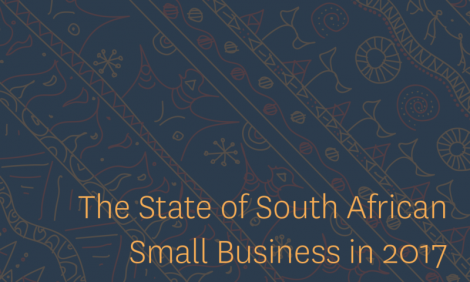
What small businesses need from government

South Africa’s small businesses make a massive contribution to the national interest. They account for 52% of the country’s GDP, and are an essential part of its short-term economic growth and long-term economic health. The government has made attempts to recognise this contribution. Their most notable attempt was the 2014 launch of the Department of Small Business Development.
But this initiative hasn’t proved as helpful as those behind it might have hoped. Our research reveals that only 3.7% of small businesses feel that the department has helped their organisation, with 89.4% saying it has not. Small businesses have specific requirements and preferences that are not being addressed in the current climate.
If the Department of Small Business Development and indeed the wider government wants to help companies, it needs to consider focusing on the top five priorities identified by South Africa’s small business owners as part of our 2017 State of Small Business report.
More funding (48%)
At the moment, some 85% of South African startups are self-funded. This might be a viable option for many entrepreneurs, but many others – individuals with great ideas and the acumen to see them become successful products and services – don’t have the resources to start a business without outside funding. Even those who do manage to fund their own companies won’t necessarily have enough for the business to reach its full potential.
Limiting the country’s entrepreneurs to those with enough money to start a business immediately dilutes South Africa’s executive talent pool. If the government makes more money available to companies via subsidies, more companies are likely to be launched.
Less red-tape (44.3%)
Many would-be entrepreneurs are put off by the country’s strict regulatory environment. This isn’t necessarily because the rules themselves are unduly stringent, but because the government expects full compliance while providing very little in the way of official assistance. Additional issues are a lack of coordination between government agencies and departments. They frequently have different, often opaque, interpretations of the rules.
These things are highly detrimental to businesses trying to find their feet and aiming to grow. South Africa’s entrepreneurial community can only thrive in a legal environment that emphasises fairness and ease on all sides. Therefore any unnecessarily obstructive regulations need to be eliminated.
Tax breaks (42.8%)
Taxes put significant pressure on small businesses: some 16% of entrepreneurs say it keeps them up at night. It’s not hard to see why. When taxes are too high, it is bad for South Africa. Many businesses feel compelled to move overseas, hurting the company and moving jobs and revenue out of the country.
Tax breaks can be an effective way to provide incentives for would-be entrepreneurs to start a business. If the government makes a concentrated effort to introduce tax breaks, it will see more founders – and eventually, more tax revenue from their companies.
Improved access to finance (35.8%)
In the absence of subsidies and grants, small businesses are also struggling to borrow the money they need to grow. Banks are often reluctant to lend to them, so the government becomes a lender of last resort.
Happily, some options are available here. The Department of Trade and Industry and its various satellite organisations offer loans with flexible repayment terms and lower interest rates. That said, expanding the available finance options is a clear way to help entrepreneurs start a business.
Education investment (22.3%)
It’s often difficult for small businesses to identify people with the competencies they need – especially in the midst of a long-term skills shortage. If talent is unavailable, companies can’t function at maximum efficiency.
If the government takes steps to invest more in education, the overall skills base of the country should improve exponentially. This will create better employees, but it will also create more potential CEOs.
But this is a long-term consideration. What small businesses need from the government in the short term is more attention. The Department of Small Business Development may represent a good first step, but it is just that – a first step. The government and entrepreneurs have many more to take.
The post What small businesses need from government appeared first on Xero Blog.
Source: Xero Blog






